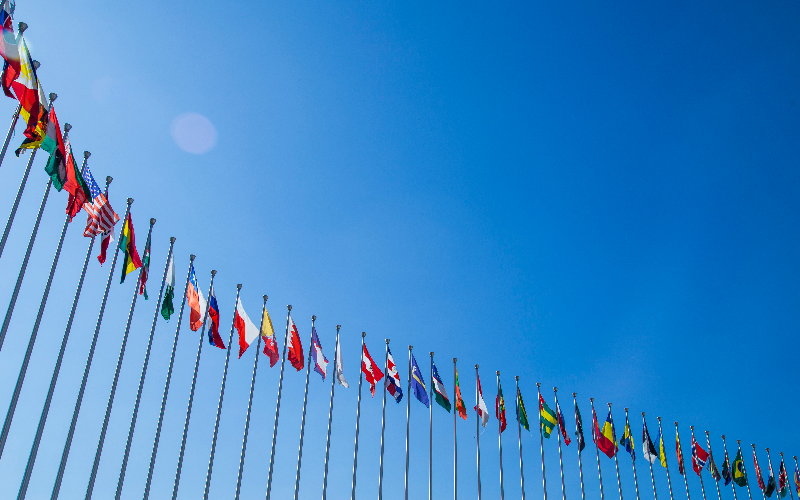By Geir Sverre Braut
“A world in turmoil” is the unifying headline of the upcoming World Congress on Public Health (WCPH 2023) in Italy in May 2023. This somewhat pessimistic statement is followed by a considerably more optimistic expression: “Opportunities to focus on the public’s health”. To take this a bit further, I will claim that the current situation in our world more than ever before calls for, or even cries for, public health work as science and practice to show its potential across geographical borders, political systems, and ideological standpoints.
The ongoing COVID-19 pandemic still reminds us that all countries and populations are interwoven when it comes to the most serious threats to the health of the people. Not only contagious diseases call for our attention across borders. We know that the climate is about to change. We know that such changes will influence health, even though the effects still are quite obscure. From history, we learn that severe deterioration of the health in the populations affected, always accompanies violence and armed conflicts.
Not merely the health is reduced by today’s threats. The differences between people will also increase. The consequences of public health threats are more difficult to handle for those worst off, than for those best off. This is a serious public health challenge in itself.
Even in a world in turmoil, proven strategies and methods for health protection must be maintained. Clean water, fresh air, enough food, and sound nutrition are of crucial importance, not least when physical and social surroundings are under pressure. Basic health care has to be ensured.
Effective preventive measures, like vaccination, have to be prioritized. This is not least important when people are moving or forced from their homes, and then often provided with substandard and crowded housing facilities.
The measures mentioned above build on linear causal chains, which we know well. Just like normal housework, the work can never be done once forever. We have to keep up the intensity from day to day, year to year, and not least from generation to generation.
In addition to known tactics and strategies, we have to think further. We need to enlighten the complex causal chains behind our new challenges. Updated health promotion has to rely upon a multitude of theories, knowledge from several sciences and not least creativity and a huge variety of competence among the public health workers.
What should be seen as the “glue” ensuring public health workers with varying backgrounds stick together? We have to look for the values behind public health as science and practice. Central to this aspect is realizing that the health of every single individual is not only based on individual genetics or personal lifestyle. Important predictors for staying well during a life span, we find in characteristics related to the population we belong to. By combining this population perspective with the right to life for every single human being, we create a solid ideological platform for public health.
Balancing measures based on mass strategies, aiming the whole population, with those aiming the persons at high risk, is at the core of the art of setting up a public health programme. If we focus only on a mass strategy, we may end up favouring those already best off. Therefore, we must ensure that all strategies also keep an eye on possible unwanted side effects.
How should we then analyze and interpret observations related to public health if we accept that public health work requires a multitude of scientific approaches and affects most sides of a society? Obviously, there is no way around making public health work a politically-based activity.
The population itself, every single individual, should have a saying in public health. The only accepted method we know today for this is through democratic processes, where freedom of speech, free elections, and mutual respect between populations and individuals are maintained. An important lesson learned from fighting the pandemic in Norway is that the combination of professional and political argumentations behind necessary public health measures makes the population listen and follow up.








Recent Comments